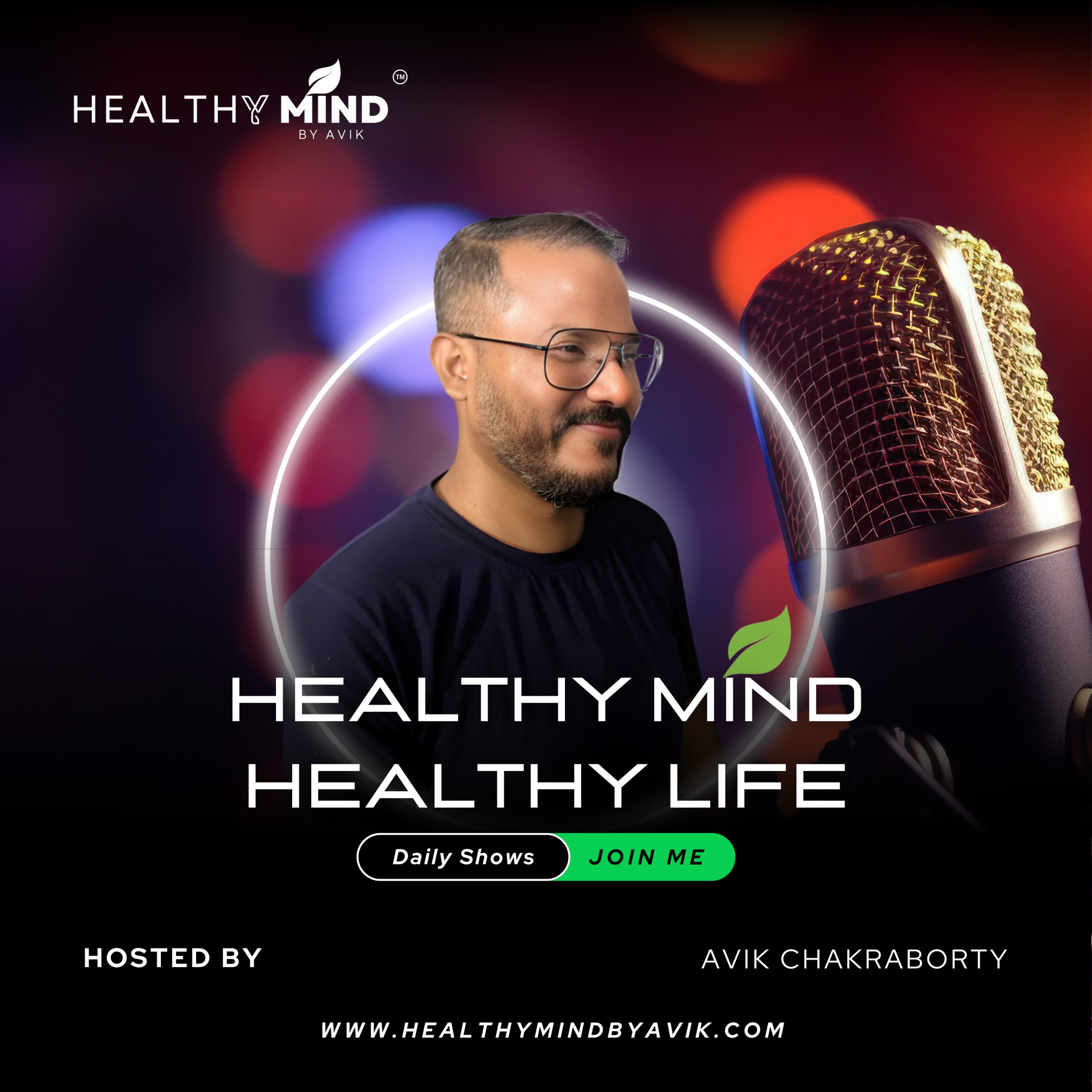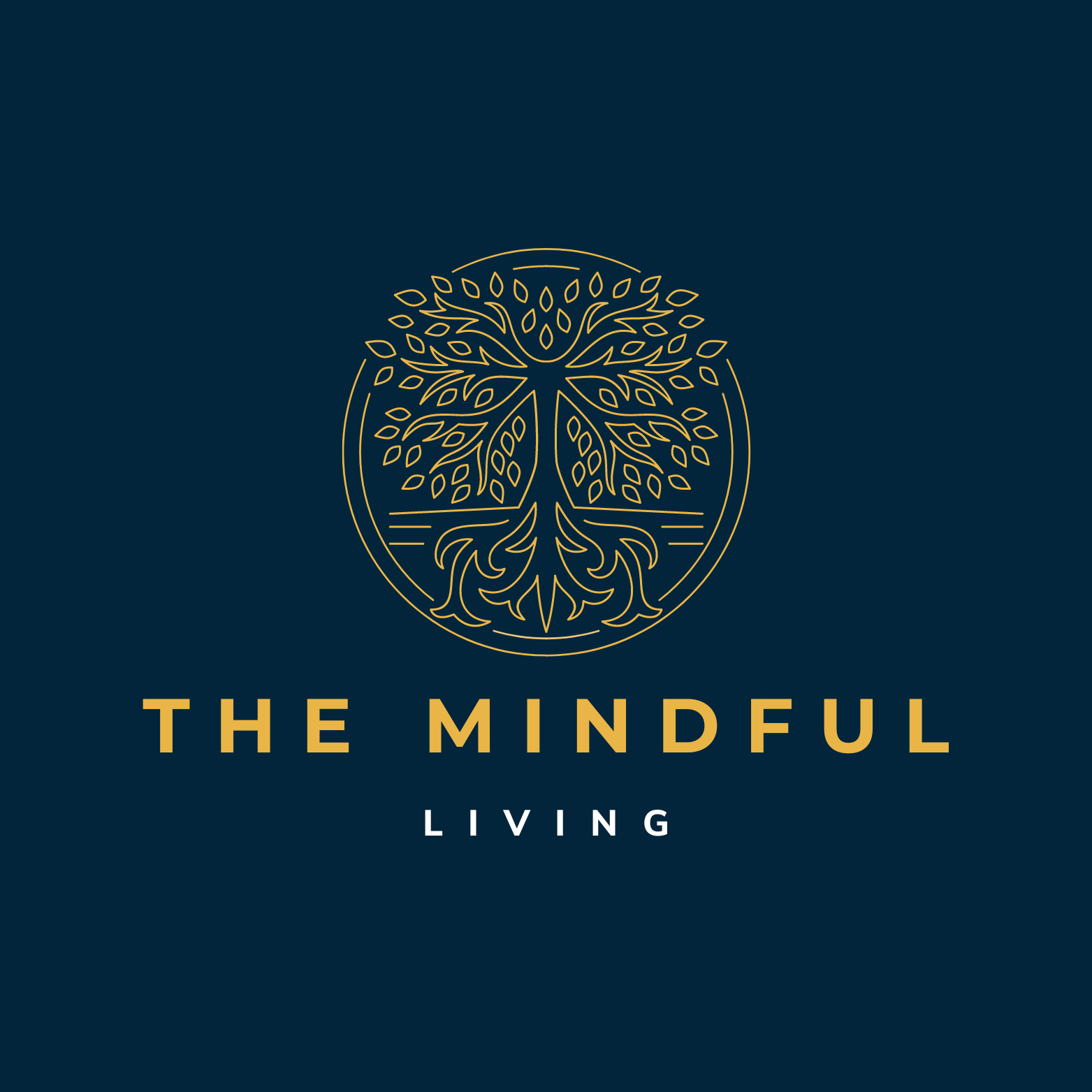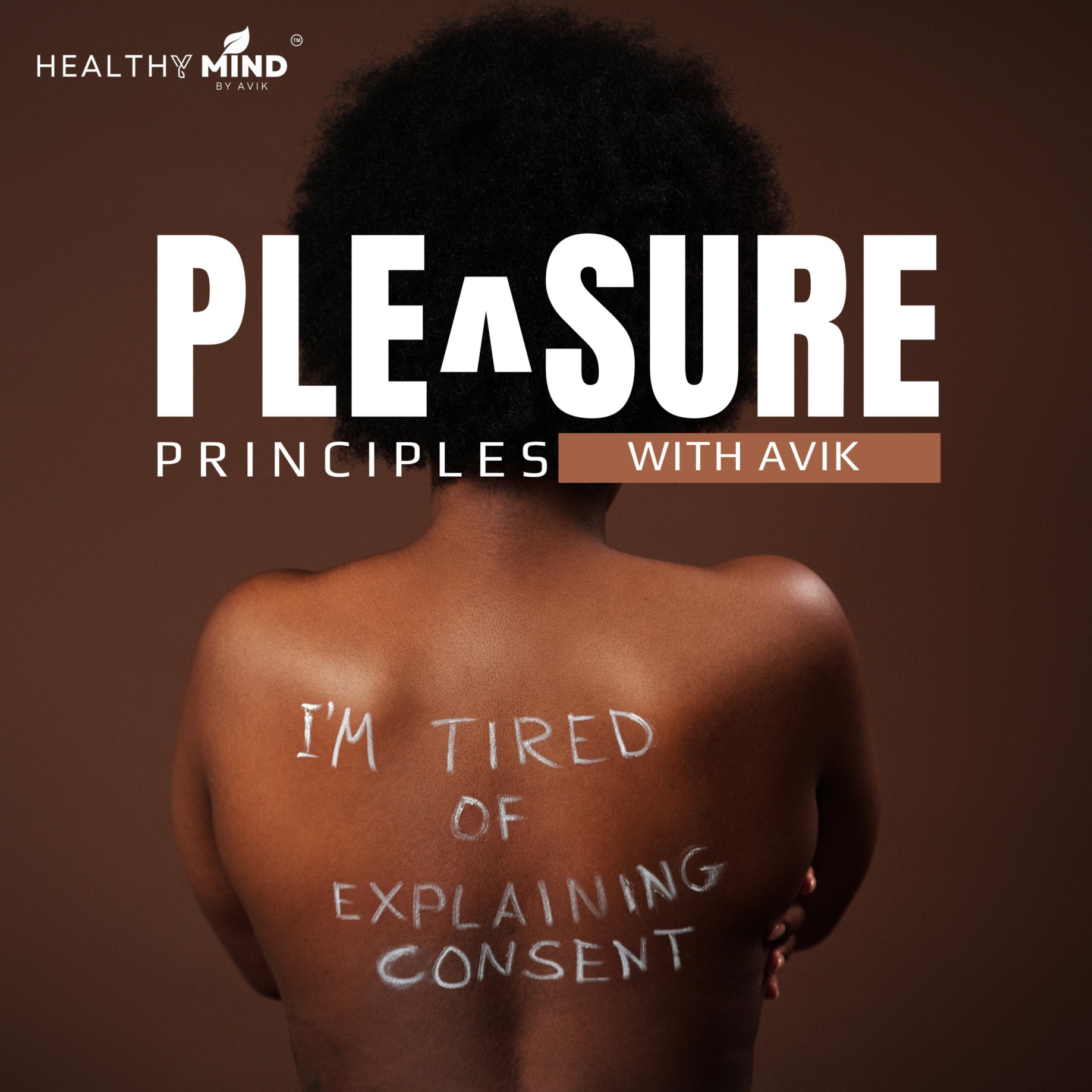
Mind Over Masculinity
Let’s stop asking men to "man up" and start asking how we can lift them up. After all, mental health is not just a women’s issue or a men’s issue—it’s a human issue.
Take the first step today. Talk, listen, and advocate. Together, we can make a difference.
Mind Over Masculinity
Redefining Masculinity: The Power of Vulnerability and Connection - Nick Batchelder
Nick Batchelder doesn't mince words when addressing the suffocating pressure young men face to have their lives perfectly mapped out by their twenties. "If 40-year-olds feel it's unrealistic for them to have everything figured out, it's definitely unrealistic for 20-year-olds," he shares with refreshing candor that immediately cuts through societal expectations.
As a 20-year-old entrepreneur, author, and founder, Nick brings wisdom beyond his years about navigating the uncertain terrain of early adulthood while maintaining mental wellbeing. Throughout our conversation, he repeatedly returns to the transformative power of intention—not in avoiding failure, but in approaching it strategically. "My goal is just to fail as cheaply and as quickly as possible," he explains, revealing how this mindset accelerates growth and builds resilience.
The discussion takes a particularly powerful turn when exploring emotional vulnerability among young men. Nick speaks honestly about the challenges of finding outlets for emotional expression, suggesting practical approaches like identifying just two or three trusted connections rather than attempting to overhaul entire friendship dynamics. His insight that "you don't need to shoot for the moon" when addressing emotional health makes the journey feel accessible rather than overwhelming.
Perhaps most compelling is Nick's perspective on authenticity in an era dominated by highlight reels and carefully curated online personas. He shares personal examples of deliberately showing imperfection in his content—like filming himself d
Automate Social Media Post
Make Short Clips From Long Videos
Loved by 4M+ marketers, entrepreneurs & creators
Create and translate videos
Create and translate videos with HeyGen's AI Video Generator
Buzzsprout Podcasting
Disclaimer: This post contains affiliate links. If you make a purchase, I may receive a commission at no extra cost to you.
-----------------------------------------------------------------------------------------------------------------
Want to be a guest on Mind Over Masculinity? Send me a message.
-----------------------------------------------------------------------------------------------------------------
Stay Tuned And Follow Us!
- YouTube - https://www.youtube.com/@healthymind-healthylife
- Instagram - https://www.instagram.com/podhealth.club/
- Threads - https://www.threads.net/@podhealth.club
- Facebook - https://www.facebook.com/podcast.healthymind
- LinkedIn - https://www.linkedin.com/in/newandnew/
Welcome to the YouTube channel of the YouTube channel of the YouTube channel of the YouTube channel of the YouTube channel of the YouTube channel of the YouTube channel of the YouTube channel of the YouTube channel of the YouTube channel of the YouTube channel of the YouTube channel of the YouTube channel of the. Thank you mind over masquerady, where we break down the walls around men's mental health, challenge the outdated narratives and have raw, real conversation about what it truly means to thrive. I'm your host, avik, and today we are diving deep into something that every man, every human, struggles with at some point Building deeper connections and taking care of your personal medical health and learning how to express emotions in a world that often tells us to tough it out. And who better to explore this with? I mean my guest today, nick bachelorelle. So welcome to the show, nick. Thank you for having me a week lovely, lovely.
Speaker 1:So, nick, like, I'll quickly enough to introduce you to all the listeners before we start delving deep into this topic. So, um, their listeners, nick, uh, I mean uh, so like. If you think, dear listeners, like being in your early 20s is just about figuring things out one mistake at a time, then Nick is here to prove that you can actually take control of your journey right now. So he is a 20 years old entrepreneur, author and, of course, crush your 20s, founder of Hive Mentors and host of the Building the Blueprint. His whole mission is to give, or about giving young adults the tools they need to build success early on, whether that's in career confidence or maybe the personal growth. So, nick, welcome to the show.
Speaker 2:I mean, uh, I can't wait to discuss about this topic.
Speaker 1:Thank you same, yeah, excited to dive into it, lovely, lovely so, nick, like a lot of young men feel like I mean overwhelming, like pressure to have life figured out by their 20s, whether it's career, relationship or even even I mean what to say, like just knowing who they are. So you have written a book about navigating this phase. So what do you say to someone who is listening right now, who feels lost something?
Speaker 2:yeah, I mean, you're so right. So many young adults, particularly, you know, college students they think I have to have it figured out by the time I graduate college. You have to figure out what's my life plan going to look like, what job am I going to have, where am I going to live, who am I going to go out with? And the reality is those expectations are just so overestimated. I was on a podcast a couple of weeks ago with two lovely women. They're both in their forties and they were actually they brought it up themselves about how they felt like everyone said to them hey, by the time you're 40, you need to have everything figured out Right. And they were talking about how, like that's an unrealistic expectation. So if you know, the 40 year olds feel like it's an unrealistic expectation for them to have everything figured out. It's definitely unrealistic for all the 20-year-olds to have it figured out.
Speaker 2:And you're absolutely right when you're talking about the intro. You're like 20 is about making mistakes one step at a time or figuring things out one step at a time, and that's really what it is. A lot of my book is around figuring things out early. But it's not about not failing. It's about having intention behind the failure and having intention around. Well, you know what? I don't know what I want to do yet, I don't know who I am yet and I want to take intentional steps towards figuring that out every day. And so that's what I would say is stop, stop having the mindset of I should have this figured out and start having a mindset of I'm going to start figuring this out.
Speaker 1:Understood. Yeah, that's true. And also, like I mean, you have to say that, as men, like we are often taught to be decisive and to have a direction, but the truth is, not knowing is a part of the journey, right, I mean, I think a lot of growth comes from admitting that you don't have all the answers, or no, I don't know so, but being willing to keep searching. What do you say on this?
Speaker 2:I mean absolutely. Yeah, I think that's true everywhere. So I can name five different aspects of my life where I thought I had it figured out and I didn't. Like you could say for the business of, I've changed the business model 20 times. You're like, oh, I've got this perfect idea and I've got it figured out and I know where I'm going. You're like, oh, there's probably a better way. Oh, I've got this perfect idea and I've got it figured out and I know where I'm going. You're like, oh, there's probably a better way, and you think you know what, I've got it figured out. Like I'm in the gym every single day like I think I've got it, and then all of a sudden you have a bad week and you stop going to the gym. You're like, oh man, I didn't have it and you know. Or I think I figured out what my major is and it's like, nope, changed my major, so now what am I going to do? So so, yeah, you're 100% right, it is all changing.
Speaker 2:And having the self-confidence and the emotional intelligence to not let your ego take over, because the ego is the issue there.
Speaker 2:The ego is the one who says, doesn't want to admit when we're wrong and you know, if you're, if you have the emotional intelligence and if you have the, the awareness to know when your ego is speaking, and you know, you're able to kind of shut that narrative down and admit that you were wrong and make a quick pivot and keep moving, you're gonna grow so much faster because you know the reality is for me, you know, with experimentation and you know being young and failing all the time is like I just my goal is just to fail as cheaply and as quickly as possible.
Speaker 2:Right, like I fail all the time, I try really fast, I feel really fast and I learn really fast. Right, and it's just a cycle that feeds into itself and like that's how you grow. Um, and that's how you grow efficiently and quickly is by admitting like hey, yep, this was wrong, but I'm going to try this next time. Oh, got it wrong again, but I got a little bit better, so I'm going to try this next time. And then you slowly get those building blocks and start to see real growth and real change exactly that is very true.
Speaker 1:Yep, yep, and and also like uh, I mean. There's still the stigma that men should suppress their emotions, that expressing vulnerability is a weak kind of uh signal or sign. So have you ever struggled with this personally, and what's your perspective on the emotional expression as a young man?
Speaker 2:yeah, I think, particularly particularly being young, it's difficult to kind of build those relationships and have outlets to express those emotions, just because it's not a common thing, right? It's not like a common part of the culture, right? So, for example, my dad has this thing that's called is like men's group, and him and a lot of his friends meet every couple months and they sit down and they have these like overnight sessions where they just talk, right, and they kind of get those emotions out, like that's not a thing here, like I don't have that and so for. For me and you know, my advice to others is just is not focusing on. It has to be this big thing and like make this a big deal, but just like finding little ways to figure it out. Because the reality is like it's.
Speaker 2:It is hard being a young man, especially in college, but like you do have to find little outlets for it. So, for example, you know, outlets for me are talking to my dad, like my dad's an outlet for me, my brother's an outlet for me, um, you know, and it's like I have lots of friends here, but I have one or two that I'm particularly for more comfortable with having those kind of conversations with. So, even if it's not a whole friend group that my dad can have because he's a little older just having that one or two friends that you can have those conversations with, having that family member or that cousin that you can have those conversations with. And then usually there's also resources on campus. I know here at the University of Oregon we have this thing called the Men's Resource Center, which is a great, you know, resource for young men to just kind of go and get those feelings out and just to be surrounded by other young men and feel, you know, a sense of community.
Speaker 2:More difficult as a young man, you know you don't need to shoot for the moon, just find your little outlets, have those, you know, two to three people that you can talk to and that you can have those kind of open conversations with, because it is so important and you can't just keep it all inside. Right, you have to. That's how you grow and that's how you stay sane. Right Is getting that out and talking to people.
Speaker 1:Understood. So what's the one emotion that you have used to struggle with that? Uh, you have now learned to embrace that as well what's one emotion that I used to struggle with?
Speaker 2:yeah, yeah hmm, I would say, um, self-comparison, definitely, I think, growing. I think so many young adults have that. Just because you know, when you're growing up, you just especially for me, like you know, in high school, like I was never I would, I was nowhere near considered like quote-unquote cool, like I was, I was not confident, I was not outgoing, I wasn't where I wanted to be, like, not that like you need to be cool to like be happy, but but, like that's just the stereotype of being a high school kid, right, and so like there's always this feeling of like, oh man, like I wish I had that. Or like, oh man, so-and-so's life is the best, like he's on the football team, he's the quarterback, like, oh what. Like, oh man, he's already got a guys, so cool, right, like all this ridiculous stuff.
Speaker 2:And I I quickly came to realize, as I kind of started to get some of those things on my own, like, oh, like this doesn't really mean that much, right. Or I started to get closer to those people and I realized like, oh, that person actually has a lot of problems that you don't see on the surface. Like I'd actually much rather be where I am, even though I don't have all those things because I also don't have all those problems. So, you know, I, as I, as I put myself out into the world, more I really started to realize like, oh, like you know, I'm a badass in my own respects and I really don't need everyone's approval to to feel that way. And you know it's, it's something that everybody tells you all the time and it's something that you know I tell people all the time. But I, I really do think, to fully conceptual, conceptualize that concept, you kind of have to put it in practice.
Speaker 2:Right, like everybody says, like all all celebrities say, you know, being famous doesn't make you happy. Right, and all billionaires say, like being a billionaire doesn't make you happy, but like we all, kind of secretly, still want to be a celebrity and a billionaire. Right, it's like let me see for myself. Right, you're like, okay, like I don't know about that, right, and so I do think there's a sense of like you have to just develop yourself and put yourself out there and like become that person, and I think then you'll realize that you don't have to have those emotions and be self-conscious and have that self-comparison. But if you're able to kind of have that awareness and internalize that earlier. It makes the journey easier.
Speaker 1:Exactly, exactly, yeah. So that's really lovely. I mean like, yeah, there's a fine line between ambition and burnout and I imagine that with everything that you're doing it's it can be easy to fall into that trap also. So how do you balance your mental health with your drive for the success?
Speaker 2:yeah, I balance it by just prioritizing fun things. So, for example, like I spend as little time on social media as I can and I probably don't, maybe don't sleep quite as much as I should but what I do is like my time is either spent working or my time is either spent doing things that bring me energy and bring me joy. So you know, for example, on Wednesday I played dodgeball from six to 10. I had intball from six to ten. I had intramural dodgeball. I didn't feel fastball for four hours like nothing about that is productive or businessy or efficient, but it but it brought me a lot of joy. I was with a lot of friends. It was a great time like that helped. That was great for my mental health, right, um, and then. But before that I was working right.
Speaker 2:So I think for me how the reason I'm able to kind of prioritize my mental health, right, um and then, but before that I was working right. So I think for me how the reason I'm able to kind of prioritize my mental health in a lot of ways is like I'm just, I'm really efficient, I'm really good about, you know, scheduling my thing, my scheduling my to-do list. I'm really good about getting things done. When I say I'm going to get things done and that allows me to, you know, get everything done early and get everything done quick, so that I have time to do fun things and to call my brother or call my dad, or to go out with my friends and have those college experiences and have those experiences that are good for my mental health.
Speaker 2:Or go to the gym that's great for your mental health Go for a walk. So I would actually say the biggest thing for me in that is I'm just a really good scheduler, I'm very organized, and that that really helps me one, make time for that kind of stuff. And then, two, I'm just good about scheduling that into my life right. Like I'm good about saying, like today's, today, at two to four, I'm going to the gym, because that's good for me I need to go. Or today, six to ten of playing dodgeball, right. So it's a combination of of scheduling well to free up time and then scheduling well so that I actually spend that free time doing things that are good for me that's amazing.
Speaker 1:That's a very clear cut and, uh, I mean organized way, as you mentioned. Definitely, yes, also, like um, about your book. Like you talk about the relationships, confidence and the personal growth. So what one lesson that you have learned about self-worth is in relationship. You say the last part again, sorry. I'm saying, like I mean in your book, about relationship, confidence and the person growth. So what's the one lesson that you have learned about self-worth in relationship?
Speaker 2:The one lesson I've learned about self-worth. You know, the one lesson that I've learned about self-worth. The one lesson that I've learned about self-worth and I actually, you know, would say it's developed the most from a lot of all the speaking that I do and the social media stuff, because that actually is more vulnerable than the book in a lot of ways because it's in person and more people see it and so you know I'm in person, I get real-time feedback from it is just the importance of you know, authenticity in so many ways. Authenticity is great for your mental health. Authenticity is great for the relationships you build with others. Authenticity is great for you know, if you want other people to like you, like there's something like authenticity is so important. You want to like yourself and you want others like you. You know people can sense that. You can sense that right.
Speaker 2:Everybody knows whether or not everyone has an underlying subconscious feeling of like, is this person like being authentic, right, like you can tell when you're outside, you're like when you meet people, you're like that person's just him or that person's just her, and I think that's so important for having a sense of peace Because for me, like in terms of, you know, mental health and happiness and whatnot.
Speaker 2:Like I'm really searching for peace and peace of mind. Like, do I have any regrets and do I wish I would have done things differently? Do I feel like I gave it all I had? Do I wish I would have done things differently? Do I feel like I gave it all I had? And when I'm truly authentic to myself, whether that's in a social setting, a professional setting, an academic setting that is when I feel the most peace. And so, for building relationships with yourself and building relationships with others, the importance of being yourself, even if it might be a little embarrassing at times or you might not relate to someone because your authentic self is not like their authentic self, it's just so, it's so important and it'll take you way farther than you would imagine understood.
Speaker 1:That's totally perfect. Yeah, yeah, and and also like there's this concept like uh, highlight culture, so, where people focus so much on making their life look good online, but behind the scenes they are struggling. So how do you stay authentic and grounded in the middle of that?
Speaker 2:Yeah, I always try and wrap all my content and all the podcasting that I do and all the speaking that I do in around the sense of like hey, like I'm your peer, I'm 20 years old, right, like, I do not have the answers figured out, but my whole kind of brand is like hey, I'm figuring it out, and as I figure things out, I'm letting you know. And as I figure things out and then realize they don't work, I'm letting you know, right. So, like, for example, I made a day in the life video earlier this week and I posted it. But like, the second clip of the video is me like making my breakfast and I put this beautiful bowl of yogurt down on the table, and then the next clip in the video is me throwing it away because I was like, oh, I realized I don't like yogurt. It's like, yeah, like I realized, like, wait, no, I just want a protein bar. Like I don't actually want this super healthy yogurt, like I can't do it right now, and so so I try and be really authentic.
Speaker 2:You know, I think it's also really true with the presentations that I do. Like, when I speak, like you know, I'm telling authentic stories, even when I'm talking to you and I'm talking about high school and the kids that have the tattoos that I think are cooler than me, right, like those are authentic things and, um, you know, I really I think there are times when you're doing social media like that. It just happens that it does come off as the better side of what is going on. But, like I, like I was mentioning you know just now, like I try to be authentic and you know, I think people that know me would agree that I am, and you know, for me, my whole thing with all that is, you know, I watch it back and I feel like I'm being authentic. That's enough. And and, if I can, I I'm.
Speaker 2:I'm pretty good about, you know, taking my ego and and making sure, like, all right, let's check, let's not let my ego take over here, like that's not, even if my ego wants to not post that video because it's not my best angle, like there's good content, so I should post it. Um, or even though you know my ego wants to make it seem like I have all this figured out, like I don't, so share that. And yeah, so being able to control my ego and feeling like I'm being authentic and being real and sharing when I make mistakes is it's how I try and do that. But you know, I'm still new to it. I'm still I'm still relatively new to this, to this world, and I'm still I'm loving it. But it's a journey, right?
Speaker 1:everything's a journey exactly, very truly said yes, great, great. So, uh, I'm and nick, like this has been such a powerful conversation and I appreciate you wisdom, your insights and your honesty today, because guys like I mean, if you want to check out more from nick, then grab his book, crush your 20s and hit up, hive mentors and definitely listen to building the blueprint. So and uh for you who is listening, like if today's episode hit home, then if you are realizing it's time to go deeper with your connections, then take better care of your mental health or start being honest with yourself. So don't let this just be another episode or you gear I mean, you hear and forget. So take the action. Reach out to a friend, family or someone and journal your thoughts, get in touch with your mentor or just sit with yourself for a minute. Yeah, so this is mind over masculinity and this is your host avik signing off. So, till then, stay real, stay open and I'll catch you soon next time. So thank you so much.


.jpg)




